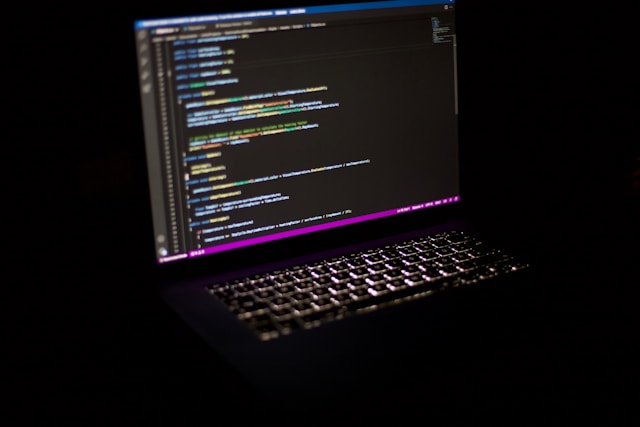In recent years, artificial intelligence has made remarkable strides in transforming industries ranging from healthcare to finance. One of the most intriguing and often debated developments is the increasing role of AI in software development. Tools like GitHub Copilot and ChatGPT are capable of generating lines of code, suggesting functions, and even writing full applications. This raises a fundamental question: Can AI replace programmers?
While AI programming tools are evolving rapidly, the idea of machines completely replacing human developers is still controversial. This article explores what AI can currently do, where it falls short, and what the future might look like for software engineers in the age of artificial intelligence.
The Rise of AI in Software Development
AI in programming isn’t a futuristic concept anymore it’s a present-day reality. Developers now rely on machine learning-powered tools to accelerate their workflows, minimize errors, and boost productivity. GitHub Copilot, trained on vast amounts of open-source code, can auto-suggest code snippets and even complete functions based on natural language prompts. Tools like Amazon CodeWhisperer and OpenAI’s models provide similar functionalities.
These innovations have led many to wonder whether human coders will soon become obsolete. After all, if a machine can write code faster and with fewer bugs, why not let it handle all programming tasks?
What AI Programming Tools Can Do
AI is already capable of:
-
Code completion and generation: By analyzing the context of your current code, AI can suggest lines, blocks, or entire functions.
-
Bug detection: Machine learning models trained on large codebases can identify patterns that commonly lead to bugs.
-
Documentation and explanations: AI tools can write documentation, explain what a piece of code does, and even convert pseudocode to executable programs.
-
Learning new languages or frameworks: Developers can use AI to get quick insights or examples when working with unfamiliar tools or programming languages.
For example, junior developers often use ChatGPT or GitHub Copilot to scaffold initial code or debug existing applications. In many cases, this improves development speed and reduces the learning curve.
The Limitations of AI in Programming
Despite the growing power of AI programming tools, they are not without their flaws. One major limitation is lack of contextual awareness. AI does not truly “understand” the problem it’s solving; it predicts what comes next based on patterns in data.
Key limitations include:
-
Limited architectural thinking: Designing complex software systems, understanding scalability, or choosing between different frameworks often requires high-level thinking that AI lacks.
-
Security vulnerabilities: AI can unintentionally introduce insecure code, as it may rely on outdated or vulnerable examples in its training data.
-
Debugging complex logic: While AI can find simple syntax errors, debugging nuanced or domain-specific issues still requires human insight.
-
Ethical and legal risks: Generative code may violate licensing terms or replicate proprietary logic unintentionally, leading to compliance risks.
So while AI can assist with programming tasks, it’s still not ready to replace coders in critical decision-making or in building highly customized systems.
Why Human Programmers Are Still Essential
Human developers bring more than just technical ability to the table they bring creativity, critical thinking, empathy, and collaboration. These traits are especially important in tasks like:
-
System design and architecture: Choosing the right tech stack, defining microservices, and ensuring maintainability.
-
User-focused development: Understanding the user’s pain points and designing features that solve real-world problems.
-
Problem-solving: Tackling unique bugs or performance issues that require out-of-the-box thinking.
-
Team collaboration: Writing maintainable code, reviewing peers’ work, and participating in Agile workflows.
Even as AI programming tools become more advanced, these human elements are irreplaceable in the software development lifecycle.
Can AI Replace Coders in the Future?
It’s tempting to believe that AI will eventually surpass human developers entirely, especially as models grow more sophisticated. However, it’s more realistic to expect a hybrid model where AI works alongside human programmers rather than replacing them.
Future trends indicate:
-
AI as a co-pilot, not an autopilot: Developers will increasingly rely on AI for repetitive and boilerplate tasks, while focusing their efforts on complex logic and design decisions.
-
New roles for developers: Skills like prompt engineering, AI model fine-tuning, and ethical auditing will become part of the modern programmer’s toolkit.
-
Specialization will matter more: Developers who focus on niche areas like security, embedded systems, or large-scale distributed architecture will remain in high demand.
In short, AI won’t eliminate programming jobs it will redefine them.
Adapting to the Future of AI in Programming
To thrive in this evolving landscape, developers should:
-
Learn how to leverage AI tools effectively: Understanding their strengths and weaknesses is key.
-
Stay up to date: The field is changing rapidly; continuous learning is more important than ever.
-
Focus on soft skills: Communication, teamwork, and problem-solving will differentiate human developers from machines.
-
Understand AI ethics: As AI becomes embedded in software, knowing how to use it responsibly will be critical.
Rather than fearing that AI will replace programmers, it’s more productive to see AI as a powerful assistant that can enhance a developer’s productivity and creativity.
Final Thoughts: AI as a Tool, Not a Threat
AI has already changed the way we write and interact with code, but it hasn’t eliminated the need for human intelligence, creativity, and judgment. While AI in software development will continue to evolve, it’s unlikely to fully replace programmers anytime soon.

